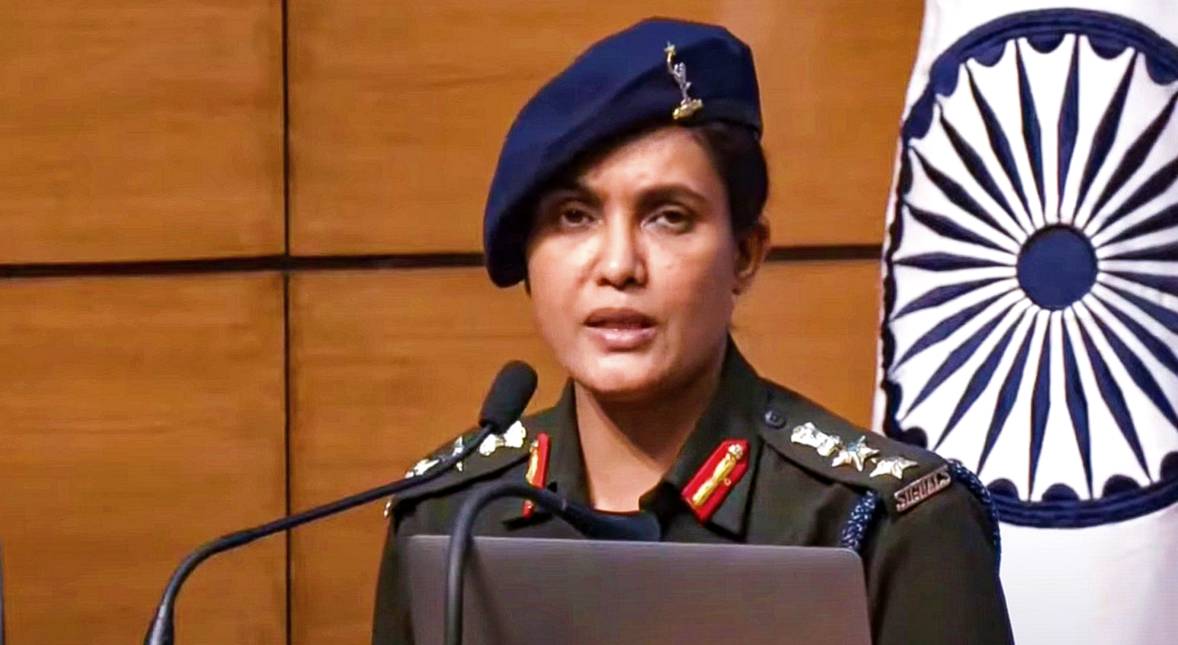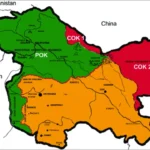New Delhi, May 12, 2025 — In the annals of Indian military history, Colonel Sofia Qureshi stands out as a name synonymous with courage, professionalism, and breaking barriers. As one of the pioneering women officers in the Indian Army, she not only shattered stereotypes but also set new benchmarks in leadership, both in India and on international platforms.
Who is Colonel Sofia Qureshi?
Colonel Sofia Qureshi is a decorated officer of the Indian Army who made headlines in 2016 when she became the first Indian woman to lead a training contingent at an international military exercise. She commanded a team of Indian Army personnel at the multinational Exercise Force 18, held in Pune under the aegis of the Association of Southeast Asian Nations (ASEAN) and other dialogue partner countries.
At a time when women were still carving their space in various combat and operational roles, Colonel Sofia Qureshi stood tall as a role model. Her leadership of the 40-member Indian Army contingent, which included personnel from various branches such as the Signal Corps and Infantry, demonstrated not just India’s commitment to gender equality in defense but also the global recognition of its capable women officers.
Career and Achievements
Commissioned into the Army Service Corps (ASC), Colonel Sofia Qureshi has had an illustrious military career marked by professionalism and excellence. Her inclusion as the contingent commander at Exercise Force 18 was not merely symbolic — it was a reflection of her proven credentials. The multinational exercise, aimed at promoting peacekeeping operations and humanitarian aid, involved military representatives from 18 countries.
By leading this joint task force, Colonel Sofia Qureshi became a symbol of empowerment and a source of inspiration for aspiring women in the armed forces. Her appointment was widely lauded both within India and abroad, representing a significant stride in the Indian Army’s ongoing push toward gender inclusivity.
Recognition and Impact
Colonel Sofia Qureshi’s name is often mentioned in conversations around gender reforms in the military. Her groundbreaking assignment helped reinforce the argument that leadership and competence are not confined by gender. Following her lead, several other women officers have been appointed to key command and operational roles in the Indian armed forces.
In a traditionally male-dominated profession, the journey of Colonel Sofia Qureshi reflects the shifting tides and the increasing recognition of women’s contributions to national defense. Her story continues to inspire not just soldiers in uniform but also young citizens across the country.
Challenges and the Road Ahead
Despite her achievements, Colonel Sofia Qureshi has never shied away from acknowledging the challenges faced by women in uniform. From logistical hurdles to long-standing stereotypes, she has navigated an evolving landscape of policy changes, societal expectations, and operational demands. Yet, through dedication and sheer competence, she has carved out a space where few dared to tread.
Her career underscores the importance of continued policy reform and equal opportunities within the Indian defense sector. With landmark rulings in recent years allowing women to hold permanent commissions and take command positions, officers like Colonel Sofia Qureshi have helped pave the way.
Conclusion
To know about Colonel Sofia Qureshi is to understand the determination it takes to rise in one of the most demanding professions in the country. Her leadership during Exercise Force 18 was more than a professional assignment; it was a powerful message — that women can lead, command, and inspire at the highest levels of military operations.
As the Indian Army continues its journey toward modernization and inclusivity, Colonel Sofia Qureshi’s legacy will remain a guiding light. Her story is a reminder that determination, skill, and leadership know no gender — and that the uniform is a symbol not of limitations, but of limitless potential.




